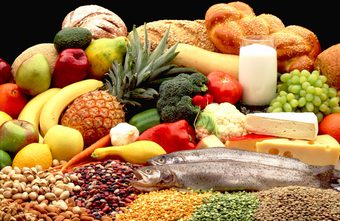Submitted by Dave Draeger, CDM, CFPP,
Director of Dietary and Dining Services

Chronic Obstructive Pulmonary Disease, better known as COPD, is the third leading cause of death in the US. COPD obstructs air flow and promotes a heightened inflammatory response in the lungs. Infectious rates vary by state, but average between 4% and 12% of the US population totaling 16 million citizens. Symptoms include coughing, wheezing, excessive phlegm and mucus and shortness of breath. It is most common in current and former smokers, but that is not always the case. COPD includes emphysema and chronic bronchitis.
Food intake and weight loss is a serious concern. Statistics show up to 40% of patients have low body weight and 25% experience weight decrease. Feeling fatigued, breathless and tired limits one’s ability to shop for, cook and consume meals. Calorie needs increase as the body struggles to maintain breathing functions.
A decrease in inflammation and exacerbations in the lungs improves function. Proper nutrition may have a direct effect in the biological processes involved in the lungs and slow the progression of COPD. The recommendation is to consume a low-fat, whole-food, plant based diet to combat inflammation.
Fruits and vegetables continue to garner attention for improved health. Limited studies show additional servings of fruit and vegetable may decrease COPD. Some trials have concluded greater intake of fruits and vegetables improve lung functions due to antioxidants and polyphenols, which have anti-inflammatory properties. Especially important are hard fruits and vegetables such as apples, carrots, avocado and broccoli.
Dietary fiber from whole grains, nuts and seeds show positive influence on COPD patients. Pistachios, coconut, almonds, pecans and flaxseed have good value. Dried beans, canned beans and lentils should be consumed. Some evidence suggests cereal fiber also could have a positive role.
Omega 3 fatty acids and fish have strong anti-inflammatory properties. Good sources include walnuts, flaxseed, trout, salmon, oysters and shrimp.
Low-fat dairy and Vitamin D have shown to reduce COPD exacerbations. Dairy products along with fish, oysters and mushrooms provide Vitamin D. Vitamin D supplement can be taken if one does not consume enough in their diet alone.
Avoiding high fat, processed red meats can reduce the risk of COPD and limit flare ups. Nitrites and saturated fatty acids can trigger inflammation.
Recommended ways to cope with COPD and improve outcomes is to:
- Assess energy intake requirements (an additional 750 calories may be required for those experiencing COPD. Check with your primary physician or utilize the internet for calorie calculators)
- Have a Vitamin D level drawn
- Consume small and frequent meals throughout the day
- Limit strenuous activity before a meal to limit fatigue
- Batch cook and prep meals in advance
- Portion and freeze meal to avoid exertion on difficult days
Although there is no cure for COPD, maintaining proper health and nutrition will improve daily living activities.
